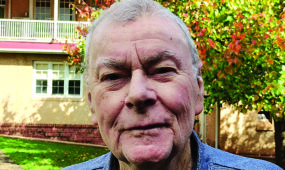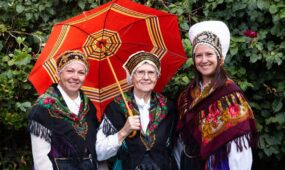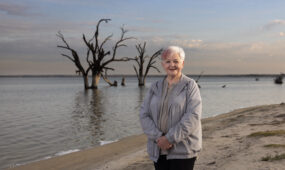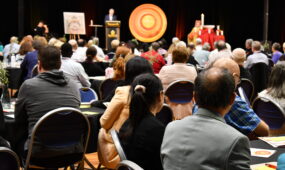Funding needed for ‘chronic’ homelessness: Hutt St Centre
News
The Hutt St Centre has served as a refuge for South Australians experiencing homelessness for 70 years but never has it been as busy as this summer.
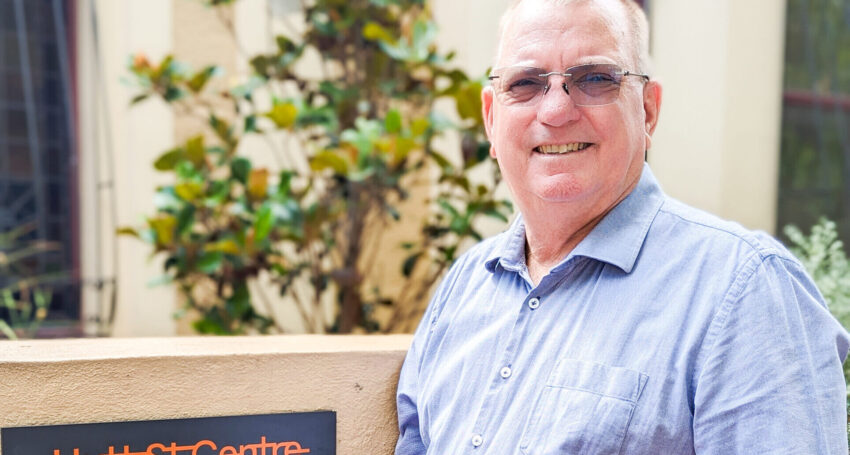
The increased demand for assistance peaked on January 9, a day that Hutt St Centre CEO Chris Burns described as “unprecedented”.
“We had 187 clients walk through our doors on that day seeking assistance – shelter, food, clothing, a place to shower, and even things like money for fuel or to get the car serviced,” Mr Burns told The Southern Cross.
“I have never seen anything like that before. On the same day last year, we served about 157 clients. That’s close to a 20 per cent increase in the number of people who need urgent assistance. The rising living costs and rental crisis are to blame.”
Advertisement
So who are these people and what brings them to the Hutt St Centre?
“We have had young people, couples, single mums – all with similar stories. They just about survived Christmas, and then they found themselves experiencing homelessness, often suddenly. Most were forced to give up their homes due to a 30, 40 or 50 per cent increase in rent. So, they sold their possessions, or locked them up in storage, and ended up living in their cars.
“Losing your rental even for two months means you’ve lost a referral.
“It is a downward spiral from there because the system is such that it will get harder for you to bounce back. Once there is no roof over your head, it becomes harder to sustain a job. There’s a lot of mental stress as well making it hard to cope.”
Referring to “chronic and persistent homelessness”, Mr Burns said Hutt St Centre’s Aspire program had demonstrated significant success.
The sixth-year results of the seven-year Aspire Social Impact Bond have shown that sustained support can significantly reduce participants’ use of government-funded services such as the health and justice systems and emergency accommodation – saving the South Australian Government $32.7 million in captured and future avoided services.
Hutt St Centre is seeking $15m in additional State Government funding for Aspire, to allow it to enrol 600 people over the seven years following the end of the program in June this year. Without additional funding, the future of Aspire is unclear.
The results of the sixth year of operations show participants have avoided spending 6091 nights in hospital across the length of Aspire, which corresponds to a 28 per cent reduction in hospital bed days relative to participants’ use prior to commencing the Aspire program.
“Of the 575 people who have taken part in the program, 1421 convictions have been avoided (a 35 per cent reduction relative to participants’ experience prior to the Aspire program), and 2847 nights of accommodation have been saved (a 71 per cent reduction), because Aspire participants have been supported to reunite with their families, find and retain homes, connect with their local community and contribute back to society,” Mr Burns said.
Advertisement
Over the six years of the program, 81 per cent of participants have been provided with housing, with 86 per cent of those maintaining their tenancies.
Of all the participants enrolled, 37 per cent have secured jobs, and 17 per cent have found volunteering roles, and others have commenced a course of qualification.
Mr Burns said the goal of every volunteer, caseworker, social worker and member of Hutt St Centre was to take each person walking through their doors from a state of homelessness to ‘homefullness’.
Emphasising Aspire’s effectiveness in making this transformative journey possible, Mr Burns said a house was not a home until the person who lives in it calls it home.
“It becomes ‘home’ only if the person living there feels safe and counted. Getting every person to that place is the result of years of support work, handholding, and not giving up on them,” he said.
“For us, the real test of homefullness is when a person comes back to us and tells us ‘thanks for everything, but I am good now… I don’t need any help anymore’.
“Finding a home for the most vulnerable in our community provides greater stability for many, which means their health improves when they’re not out in the cold in winter and they have a safe place to return to at night.
“Aspire participants are less likely to have interactions with the health and justice systems, it’s easier for them to find a job, and the State Government no longer needs to support people to access emergency accommodation.”
Stuart’s Story
Stuart joined the Aspire Program in 2020. He had been living in his car after an accident at his family home resulted in him having to leave and having nowhere to live.
Stuart’s physical and mental health suffered, including chronic back pain and daily panic attacks. He occasionally couch surfed, but usually only one night at a time.
After four months in Aspire, Stuart was offered a home by the South Australian Housing Authority (SAHA). He has lived there for more than two years – and he now has two cats – providing him with stability to connect with a financial counsellor, mental health support and a general practitioner who specialises in chronic pain management.
Throughout his time in the Aspire Program, Stuart has improved his relationships with friends and family. He meets with friends on a regular basis and has a relative who visits and stays with him overnight.
Stuart’s Aspire Case Navigator has been able to help Stuart advocate to his employment service provider about his physical and mental health which has resulted in the employment service provider adjusting his mutual obligations and gaining a better understanding of Stuart’s capabilities.
Stuart enjoys playing video games and has been able to turn this hobby into a way of earning additional income through video game streaming. This has provided him with a social outlet as he interacts with the many people who watch him play.



